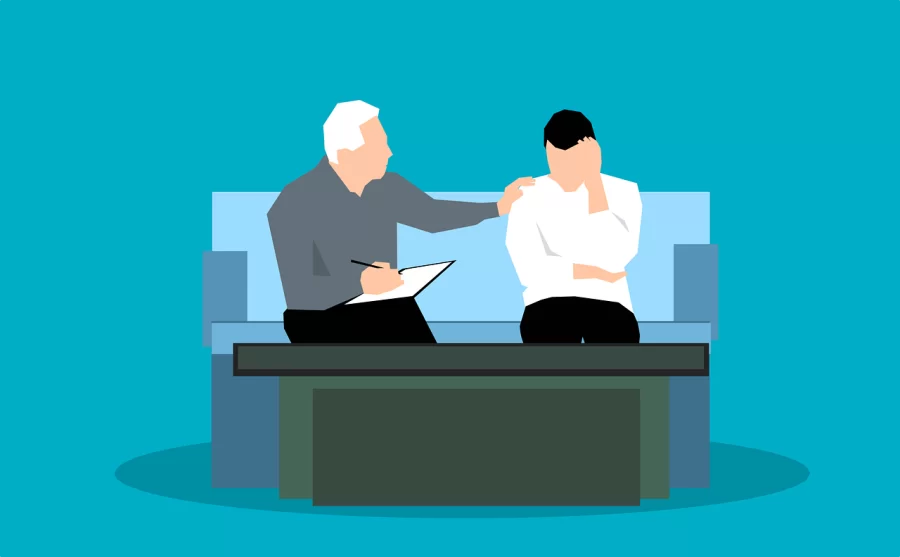Ever since the pandemic in 2020, more and more people’s mental health has become a problem. Whether it’s from being trapped with yourself in your house all day, losing friends or family arguments. But therapy has become more accepted.
The Pandemic Affected Mental Health
The Global Health Emergency in March of 2020 affected many lives physically and mentally. This was due to the losses of family members and friends and all of the information that everyone was told in such short notice. It was very overwhelming and quite frankly scared us. Everyone was trapped inside their houses all day and weren’t allowed to go out. No one was allowed to hangout with friends or family, go to work or school, or even school. This can start to make people feel a little crazy. Which for some people it did but for others it severely affected their mental health. Depression and anxiety medication demand went up drastically and so did demand for therapists and counselors.
When getting back to normal life, lots of people didn’t want to. Many students wanted to stay in the comfort of their own home because of their mental health. Lots of people were now depressed and had social anxiety so the thought of even going out was scary. Laura Czech says, “Going back to work was pretty hard. The whole world was basically shut down and I didn’t have enough motivation to go out and socialize again.” Many people also had the same mentality as Czech. Senior Kaden Moreira says, “The pandemic made me develop social anxiety and made me not want to be around all of those people in school. I felt very unmotivated to come back and thought that it was unnecessary.” Moreira and Czech both thought that they wouldn’t be able to go back to normal.
Therapy Stereotypes
Before the Covid-19 pandemic not a lot of people went to therapy, because it had a bad reputation. People were seen as mentally ill who went to therapy, when in reality everyone needs a third-party person to talk to. In the past, people who were mentally ill were seen as demonic. People thought they were like this because of witchcraft, demonic possession, or an angry god.
Sophomore Daisy Amaya said, “I do not see a therapist, but I have never thought of therapy as a joke because I watched it help my sister for years. I also think everyone should try talking to someone like a therapist, because it can benefit you.”
But there are people who actually disagree and believe that therapy will not help. Sophomore Olivia Roginski said, “I think that therapy is a joke. You pay great amounts of money for a human that is capable of having the same emotional levels as you to try and help you with your problems. A better alternative is to just leave the house once in a while or just find a hobby. You should never become reliant on a stranger to help you it can hurt you even more.” And it is true, therapy is not for everyone. It may work for some people but not for all. About 75% of people who see a therapist benefit from it. But this doesn’t mean that you should doubt all therapists. Sometimes it is the patient that needs a different technique not the therapist.
Therapists
There of course are people that have mental health issues that go to therapists, but they go to a clinical therapist or psychiatrist.
A psychiatrist is a medical doctor who specializes in mental health including substance use disorders. People who just need someone to talk to about their days and ways to improve their self-esteem go to a psychotherapist.
A psychotherapist is a therapist who helps people overcome stress, emotional, and relationship problems or troublesome habits. They use a talking technique called psychotherapy which helps you communicate your problems.
When people suffer a loss they go to grief counseling which is lead by a bereavement counselor. These counselors specialize in social work and use a technique called cognitive behavioral therapy (CBT). This technique works best for people with anxiety, depression, substance abuse and have suffered a loss.
Therapy Has Become More “Accepted”
People are more recently starting to prioritize their mental health. After the pandemic, more psychologists have reported that there is a large increase in treatment for anxiety and depression. In 2019, 13% of adults said that they go to therapy. Now in 2023, that percentage is 25%.
Sophomore Daisy Amaya says, “I think people started taking mental health more seriously because during the pandemic, parents were forced to be with their children more and they started to realize they aren’t okay. Suicide rates have gone up from people becoming depressed from being cooped up in a house all the time.” This is true, suicide rates have been increasing by 4.7% each year since 2020. The amount of depression diagnostics have also gone up. Every 1 of out 5 young adults are diagnosed with depression today. That is an 8.5% increase since 2020.
Prioritizing Mental Health
Your mental health is just as important as your physical health. Having poor mental health can lead to unhealthy habits like substance abuse which will then lead to poor physical health. You can prioritize your mental health by practicing self-care, writing in a journal, hanging out with friends, or taking a mental health day. It’s good to check in on your friends as well to see how they are doing and if they are prioritizing their mental health.
But lots of people don’t have time to prioritize their mental health even though it is important to. Sophomore Sofia Sokolow says, “I just don’t have time to take a break. I work, cheer and go to school all week and don’t just have time to myself.” But you don’t need to have a whole day to yourself. You can be in public and take deep breaths or write in a journal before bed.











